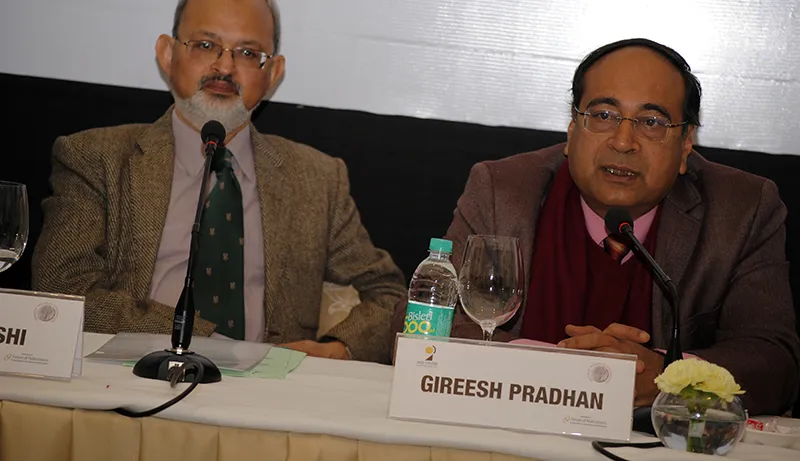India having separate ministries for each segment of the energy is inhibiting development of a coherent energy policy, according to experts.

India having separate ministries for each segment of the energy is inhibiting development of a coherent energy policy, according to experts who spoke at the second Energy Security conference organised in Delhi on February 11 and 12, 2014.
The conference, jointly organised by Observer Research Foundation (ORF) and the Asia Centre, France focused on the important issue of India’s energy governance in a global context.
ORF Director Sunjoy Joshi, during his welcome speech, summarised dramatic changes in the global financial sector that have altered perceptions on economic growth, energy demand and energy prices. He suggested that strong regulatory institutions could help mediate the political economy for a transition towards sustainable long-term energy governance. High level delegates from France stressed the need for cooperation between India and France in the energy sector. Apart from the nuclear sector, both the countries cooperate on the area of energy efficiency. France also assisted India in developing the star labeling programme for energy intensive equipments.
Many of the expert panelists highlighted India’s energy governance challenges. The fact that each segment of the energy sector is governed by a separate Ministry was pointed out by the keynote speaker Mr. Girish Pradhan, Chairperson, CERC as a key issue that inhibits development of a coherent energy policy.
The electricity sector was a source of concern in the context of governance, according to many of the speakers. Though it has a system of regulation in place, independence is compromised as retired bureaucrats, who can be potentially controlled by the Government, are appointed as regulators. This has constrained the ability to set tariffs.
Mr. L. Mansingh, former Chairperson, PNGRB, key note speaker on the second day, brought out the issue of level playing field in the petroleum sector where the government is the policymaker as well as the owner of natural resources which has emerged as a major challenge in attracting investments in the sector.
Experts also highlighted how shortage of skilled personnel is hampering the growth of the energy sector. It was also pointed out that Distributed Power Generation can be a game changer for India and that countries like Denmark, Netherlands and Finland are functioning examples.
Many other issues of critical importance pertaining to energy sector governance were brought out by the distinguished panelists. A detailed report on the proceedings will be published shortly.
Those who participated in the conference included Mr. François Richier, Ambassador of France to India, Dr. S Narayan, former Secretary & Economic Advisor to PM, Mr. S. C. Tripathi, former Secretary, Ministry of Petroleum & Natural Gas, Dr. S. L. Rao, Founder Chairman, CERC & Distinguished Fellow Emeritus, TERI, Dr. Surya P. Sethi, former Principal Adviser - Power and Energy, Dr. Payal Malik, Adviser - Eco, Competition Commission of India, Dr. Leïla Choukroune, Director, Centre de Sciences Humaines, Prof. Girijesh Pant, Centre for West Asian Studies, JNU, Mr. M. K. Bhadrakumar, former ambassador, Mr. Eric Dupont, Director, KFSEIEM, Mr. Deepak Mahurkar, Director & Leader (Oil & Gas), PWC, Dr. Navroz Dubash, Senior Fellow, Centre for Policy Research, Prof. Sebastian Morris, IIM, Ahmedabad, Dr. Ashish Rana, VP (Business Strategy), RIL and Mr. Jean-François Di Meglio, President, Asia Centre, Paris.
(This report is prepared by Ashish Gupta, Associate Fellow, Observer Research Foundation, Delhi)
Click here for text speech of ORF Director
The views expressed above belong to the author(s). ORF research and analyses now available on Telegram! Click here to access our curated content — blogs, longforms and interviews.




 PREV
PREV

